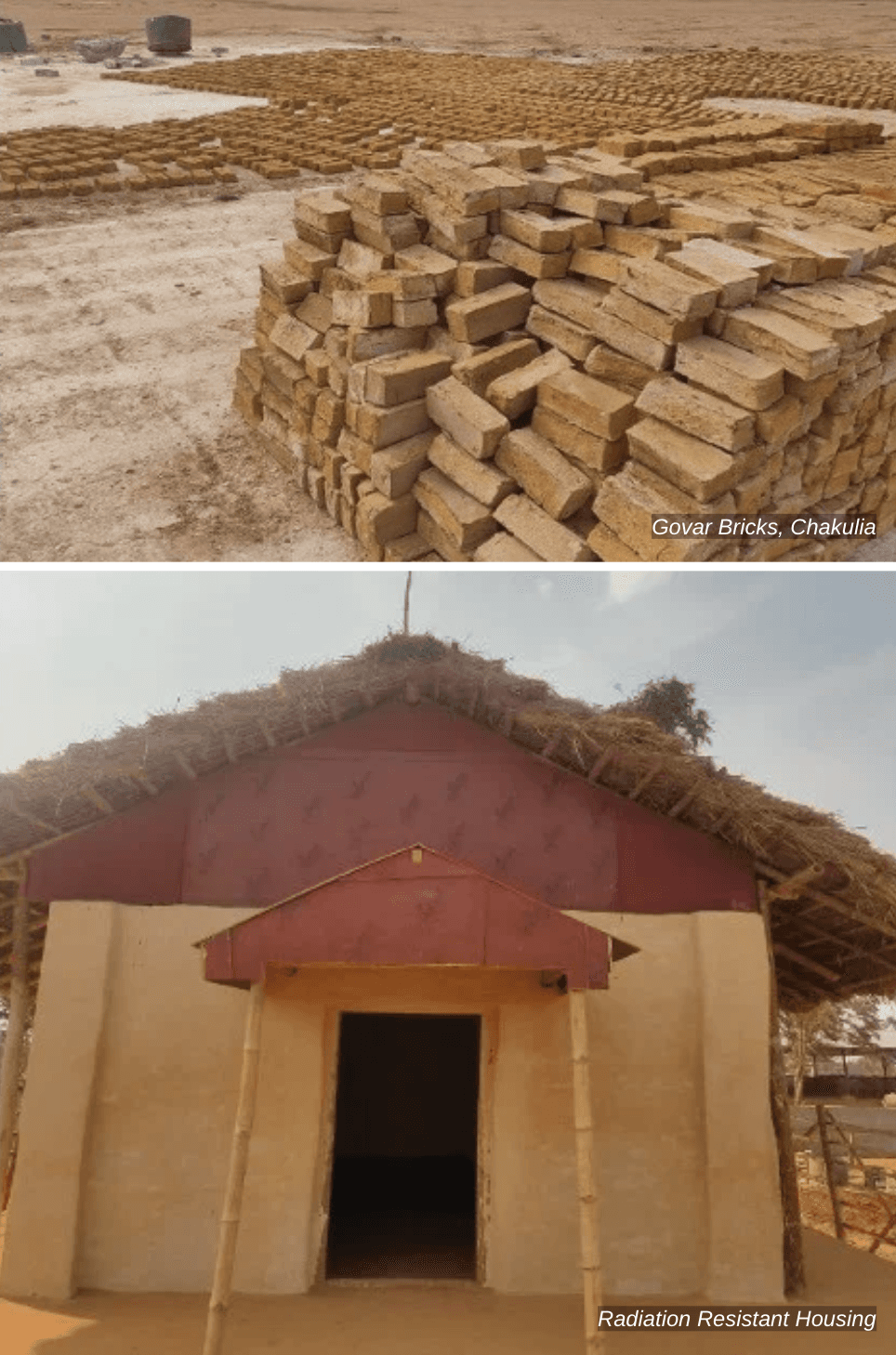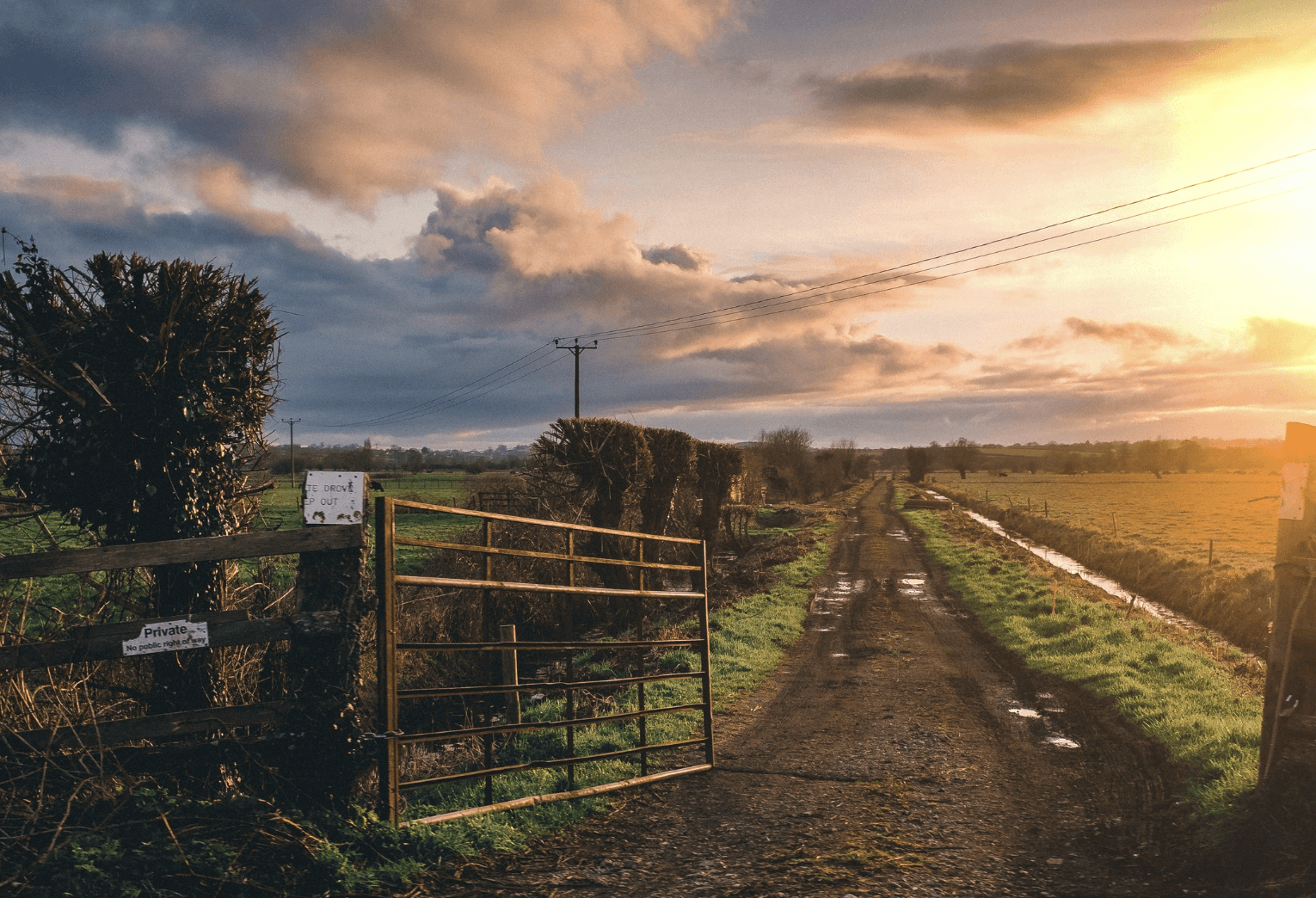Environmental Sustainablility
Biogas Generation
With sustainability in mind, we hired rural and tribal labour to build sustainable and natural solutions to generate electricity through the advanced biogas generation initiative. Various Bio Gas installations have been built in remote areas of Uttar Pradesh (Hariharpur & Gajegadha).
Solar Energy
In an attempt to utilise renewable sources of energy, we also started adopting solar energy as a way to power our shelters. Our Uttar Pradesh shelters are completely powered by Solar Energy. We have also installed solar-powered lights at our shelters in Karnataka, Jharkhand, Delhi and Tripura.
Govar pots
The single-use, ecological, and biodegradable govar pots made at Dhyan Ashram - naturally break down into the earth, part by part - as they only survive for a few weeks. As a result, the soil is improved, which facilitates nutrient absorption by the plants.
Reduction in Air Pollution
Wintertime in Delhi always results in "severe" air quality ratings. This is mostly a result of farmers in nearby states burning their paddy stocks. 32 percent of Delhi's PM 2.5 particle pollution is attributed to this one factor alone. At least 15% of the city's overall air pollution is due to paddy straw stubble. Over 30 million tonnes of paddy straw that Punjab and Haryana alone produce each year is reportedly used for this purpose. In the winter of 2021-22 alone, Dhyan Foundation purchased 3,00,00,000 kg of dry fodder in Punjab, Haryana, UP, and North East India helping offset 1,40,000 tonnes of dangerous GHG emissions.
Reduction in Water Pollution & Ground Pollution
The excessive use of fertilizers in recent times has resulted in not just higher contents of nitrate in crop yields but also in severe groundwater contamination which leads to impure water quality in states like Punjab, Bihar, Uttar Pradesh, Assam, and Jharkhand.
Traditional Farming Practices
which include the use of natural fertilizers such as Govar and cow urine, thereby reducing the use of chemicals that contaminate groundwater and reduce soil life. Dhyan Foundation shelters across the country have promoted farms to sustainably produce fodder for the rescued animals. We also make use of a variety of unique composting methods - including Pit composting, vermicomposting, and leaf composting. Over the year 2021-22, we have cultivated over 50 varieties of plants and large trees around our shelters to decrease soil erosion and revitalize the environment.
Radiation Resistant Housing

"Cow dung has the capacity to counter and reduce radiation and it has been proven scientifically”
Dr. Vallabhbhai Kathiria, chairman of the Rashtriya Kamdhenu Aayog.
We took it upon ourselves to promote and construct radiation-resistant housing in our gaushalas to house our shelter's workforce. Women in our shelter worked all hours of the day and night to shape govar into bricks. This radiation-resistant housing was constructed with mitti as cement and thatch as a roof. This year, these environmentally friendly structures kept various communities cool in the summer and warm in the winter.
Brown Gold: Govar & Gomutra
Govar and Gomutra are valuable resources from the cow which hold within their fold immense potential to boost the rural economy. Govar is known to have anti-radiation effects owing to the presence of radium. It is said that during Bhopal Gas Tragedy (1984), only those houses that were laced with govar were saved from the effects of radiation.
Ancient Vedic wisdom on the medicinal properties of cow urine is borne out by two patents granted in the US for cow urine distillate (Patent numbers 6410059 and 6896907).
Even China has granted the distillate a patent as a DNA protector. A global patent has been granted for cow urine, neem, and garlic as a pest repellent and for fungicidal and growth-promoting properties for different crops (WHO 2004/ 087618A1).
A US patent has been granted for strains from Sahiwal cow milk for plant growth promoter phytopathogenic fungi controlling activity, abiotic stress tolerating capability, phosphatic solubilization capability, etc.
CSIR has filed for a US patent for amrit pani, a mixture of cow dung, cow urine, and jaggery, for soil health improvement properties.
Since the year 2021-22, Dhyan Foundation, in its bid to make the gaushalas self-sustainable, boost rural industry and to present sustainable solutions to rural households has developed anti-radiation bricks using govar. We have built a model radiation-resistant house at our Chakulia Shelter.




